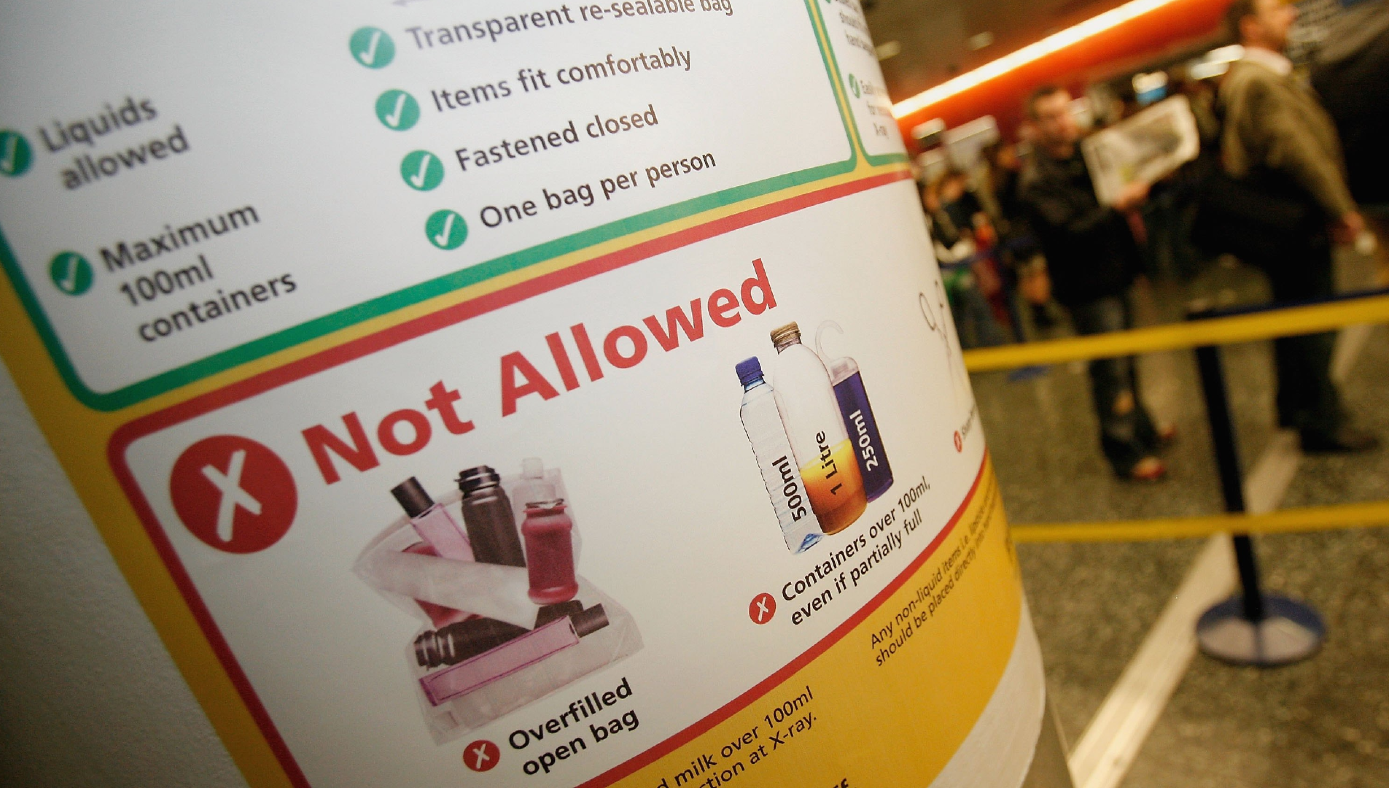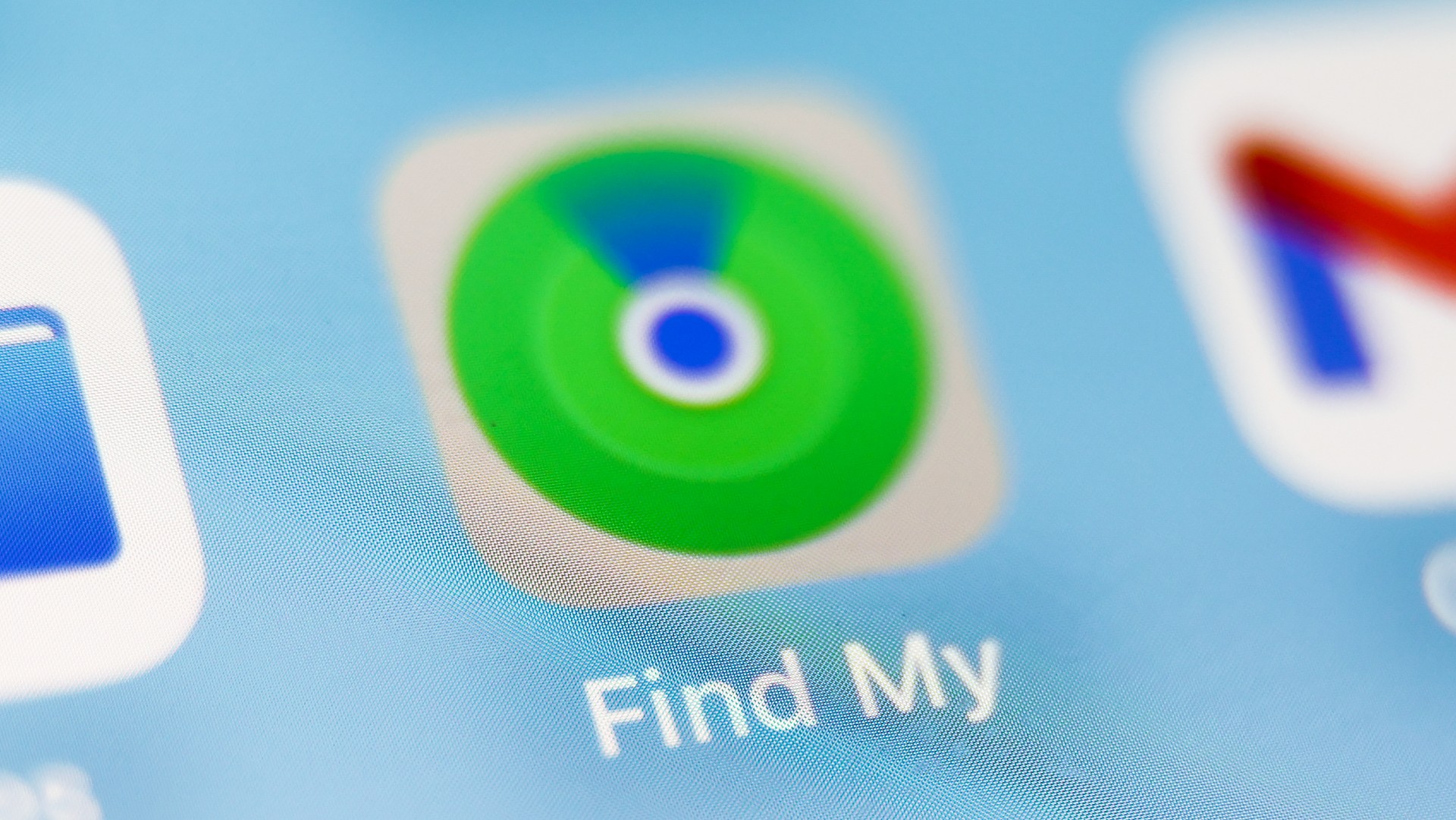Liquid rules at UK airports to be relaxed by 2024
Travellers will be able to take two litres of fluids on board in major security shake-up

A free daily email with the biggest news stories of the day – and the best features from TheWeek.com
You are now subscribed
Your newsletter sign-up was successful
Passengers will soon not have to remove fluids, laptops and other large electronic devices from their cabin luggage when going through airport security.
The 100ml limit on liquids will also be increased to two litres under new measures set to come into place in UK airports from June 2024.
Over the next year and a half, airports will upgrade the screening equipment at their security checkpoints to “cutting-edge systems”, according to the government’s website. The systems use computed tomography (CT) X-ray technology, which creates a 3D scan of the contents of a bag and uses a “highly advanced” algorithm to detect whether there is a threat.
The Week
Escape your echo chamber. Get the facts behind the news, plus analysis from multiple perspectives.

Sign up for The Week's Free Newsletters
From our morning news briefing to a weekly Good News Newsletter, get the best of The Week delivered directly to your inbox.
From our morning news briefing to a weekly Good News Newsletter, get the best of The Week delivered directly to your inbox.
Today’s announcement follows a series of trials conducted at some UK airports, including London City, since 2018. Similar technology is already in place at Amsterdam’s Schiphol airport and several US airports.
The current rules around taking liquids and laptops through airport security were introduced in 2006 after a foiled terror plot involving plans to take a homemade mixture of chemicals in ordinary drinks bottles on to planes flying to the US and Canada from London.
Although the plot was thwarted, it “caused chaos to international aviation and prompted the current restrictions on liquids for airline passengers”, reported the BBC in January. The rules were hastily introduced as a temporary measure but are still in place 16 years later.
Travellers failing to follow airport security rules is “one of the biggest causes of delays at airport security”, said The Guardian. The changes, described by The Independent as “the biggest relaxation of aviation security regulations in decades”, will streamline the process and reduce queueing times.
A free daily email with the biggest news stories of the day – and the best features from TheWeek.com
In a separate piece for The Independent, travel expert Simon Calder said that although airports are collectively “investing hundreds of millions of pounds” in the new CT technology, it “should cut staff costs” and lead to savings for airports.
“Ultimately,” he added, “walk-through metal detectors and security pat-down of many passengers should be eliminated, with technology assessing possible threats more effectively than humans watching screens.”
Kate Samuelson is The Week's former newsletter editor. She was also a regular guest on award-winning podcast The Week Unwrapped. Kate's career as a journalist began on the MailOnline graduate training scheme, which involved stints as a reporter at the South West News Service's office in Cambridge and the Liverpool Echo. She moved from MailOnline to Time magazine's satellite office in London, where she covered current affairs and culture for both the print mag and website. Before joining The Week, Kate worked at ActionAid UK, where she led the planning and delivery of all content gathering trips, from Bangladesh to Brazil. She is passionate about women's rights and using her skills as a journalist to highlight underrepresented communities. Alongside her staff roles, Kate has written for various magazines and newspapers including Stylist, Metro.co.uk, The Guardian and the i news site. She is also the founder and editor of Cheapskate London, an award-winning weekly newsletter that curates the best free events with the aim of making the capital more accessible.
-
 Local elections 2026: where are they and who is expected to win?
Local elections 2026: where are they and who is expected to win?The Explainer Labour is braced for heavy losses and U-turn on postponing some council elections hasn’t helped the party’s prospects
-
 6 of the world’s most accessible destinations
6 of the world’s most accessible destinationsThe Week Recommends Experience all of Berlin, Singapore and Sydney
-
 How the FCC’s ‘equal time’ rule works
How the FCC’s ‘equal time’ rule worksIn the Spotlight The law is at the heart of the Colbert-CBS conflict
-
 Well-heeled: Six-figure guard dogs are the new security system for the wealthy
Well-heeled: Six-figure guard dogs are the new security system for the wealthyUnder the Radar Many of these dogs can cost upwards of $150,000
-
 Pros and cons of location sharing
Pros and cons of location sharingPros and Cons Safety benefits for parents and friends must be weighed against privacy concerns and malicious misuse